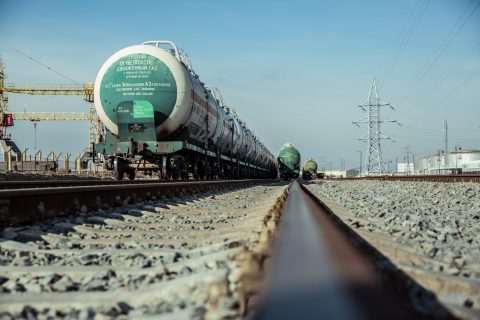Macron and Von der Leyen in China: EU de-risking, Ukraine and trade

The much-discussed visit of French President Emmanuel Macron and EU Commission head Ursula Von der Leyen in China is unfolding. By meeting with Chinese President Xi Jinping, the two European leaders aim to push for peace in Ukraine, draw clear EU policy lines, and engage in trade talks.
Macron and Von der Leyen’s visit started on Tuesday, 5 April and will last three days. The two brought along a delegation of businesses, primarily French, just like Olaf Scholz did back in November when he visited Beijing.
Various media and political analysts reported that his main objective is to “talk sense” to Xi regarding Ukraine. Macron wants to be a catalyst for a peaceful resolution in Ukraine and motivate Xi to acquire a more active role in persuading Putin to withdraw Russian troops from Ukraine.
De-risking strategy
On the other hand, Von der Leyen seems to have a different role, that of “the bad cop”, as a BBC report illustrated. The EU Commission head is visiting China to first showcase European unity and, second, draw Xi’s attention to the new EU-wide approach of de-risking the economy and supply chains.
In contrast to the US ‘de-coupling’ strategy, this de-risking strategy resembles that of Scholz’s and Germany’s, focusing on diversification and reducing dependency in specific economies like the Russian or the Chinese.
The problem with Scholz was that he drew this strategy alone, seeking to secure Germany’s economic and technological independence and prioritising national interests over EU interests. In any case, Germany’s policy was not as dramatic as presented initially and did not aim to cut ties with China. Macron also noted to journalists after arriving in China that Europe should not disassociate and separate from Beijing and should maintain its economic and trade ties.
According to experts, France and the EU have similar interests. Phillip Le Gore, a senior fellow at the Asia Society Policy Institute’s Center for China Analysis, wrote: “Scholz and Macron agree on two points […]. First, economic decoupling with China is a dangerous and self-harming proposition for the EU […]; second, the immediate future of Sino-European relations will depend to a very significant degree on how China navigates its stand on Russia’s war in Ukraine”.
Ukraine is the key
So far, the agenda items include Ukraine, the EU’s China policy and maybe business and trade. The expectation, however, is that the result of Macron’s and Xi’s discussion on Ukraine will also determine the rest agenda items. France wants to be the European mediator that will persuade China to become the mediator with Russia and stop the war in Ukraine.
Realistically speaking, China becoming the leverage to turn Putin’s mind around regarding the war is not the most feasible scenario. Nevertheless, the differentiation from the US de-coupling policy, meaning that the EU still wants to cooperate on a political and financial level with China, could work as a sign of goodwill and motivate Xi to at least become more neutral with regard to Russia.
That being said, if Macron does not manage to bring Xi closer to EU interests, then the EU-China politics will take a different turn, and so will trade and the economy. Again, it is crucial to underline that when mentioning that Sino-European relations could take a different turn, it does not mean that they would end. In contrast, if Europe wants a robust presence and role in global politics, economy and trade, it needs China as much as it needs the US.
Transport sector optimistic
In what seems to be probably one of the most challenging years for Eurasian rail transport, even more difficult than 2022, Macron’s and Von der Leyen’s visit to China sparks some hope. Indeed, according to industry sources, the first months of 2023 have seen Silk Road Volumes dropping significantly, and China mainly focusing on exports to Russia.
The war started more than a year ago; however, its effects, also resulting from the gradual implementation of sanctions, are becoming more noticeable now. Could this EU-China reapproach change the status of the past months and signal something new? Could the France-EU-China meeting mean something for Ukraine? And could this also translate into something valuable regarding trade and supply chains? Every meeting and discussion during these three days have an equally crucial role to play.
Also read:
You just read one of our premium articles free of charge
Want full access? Take advantage of our exclusive offer




